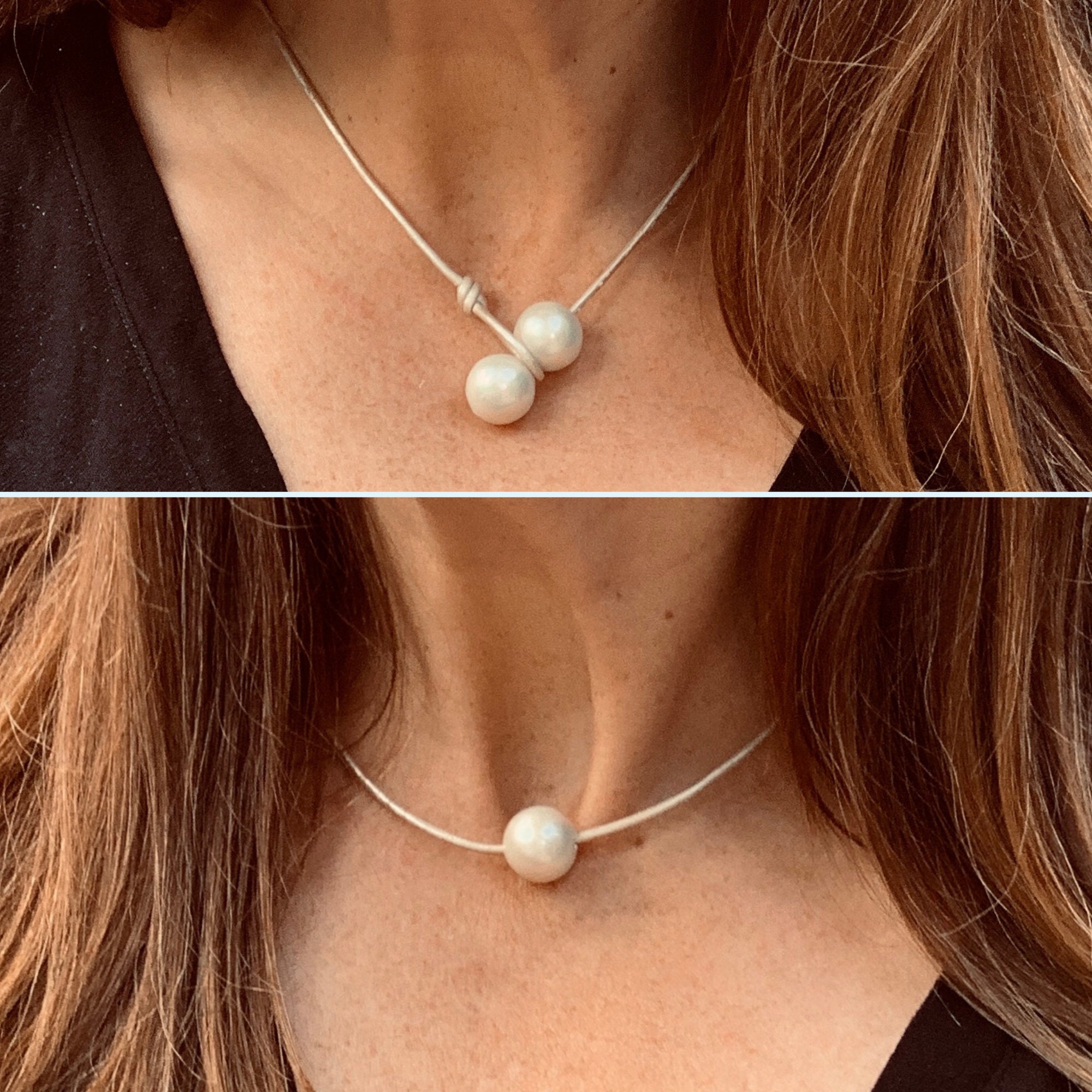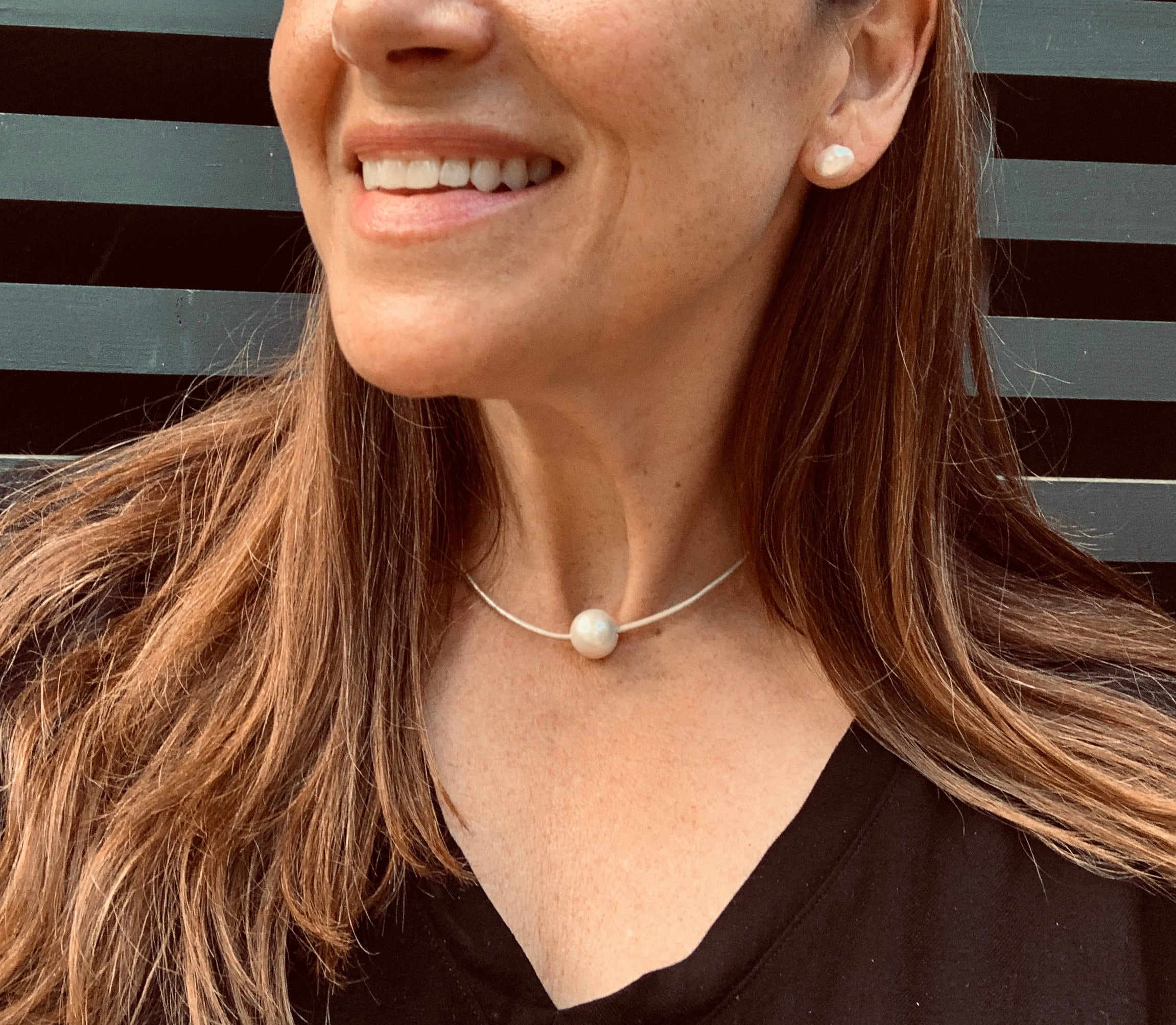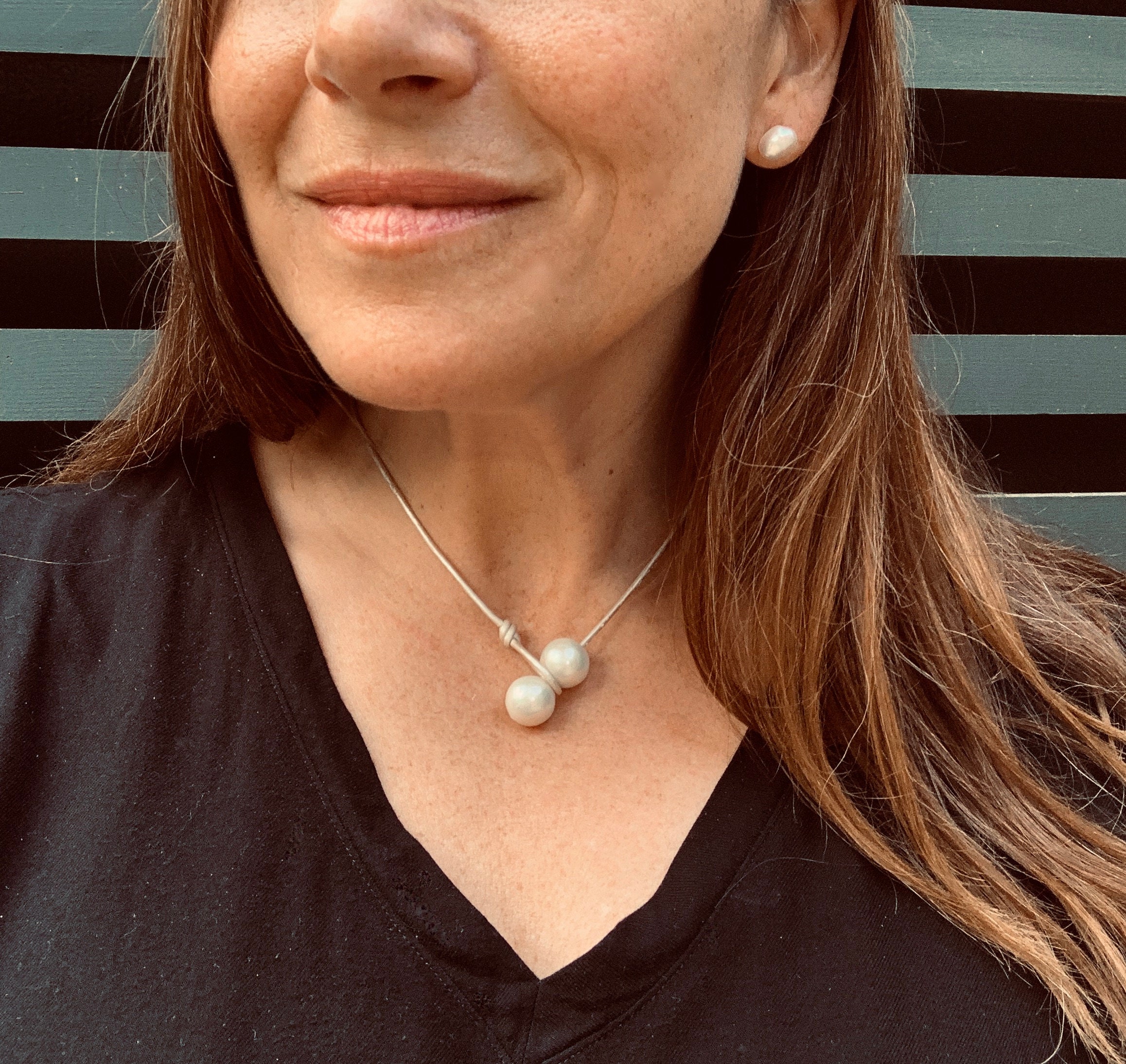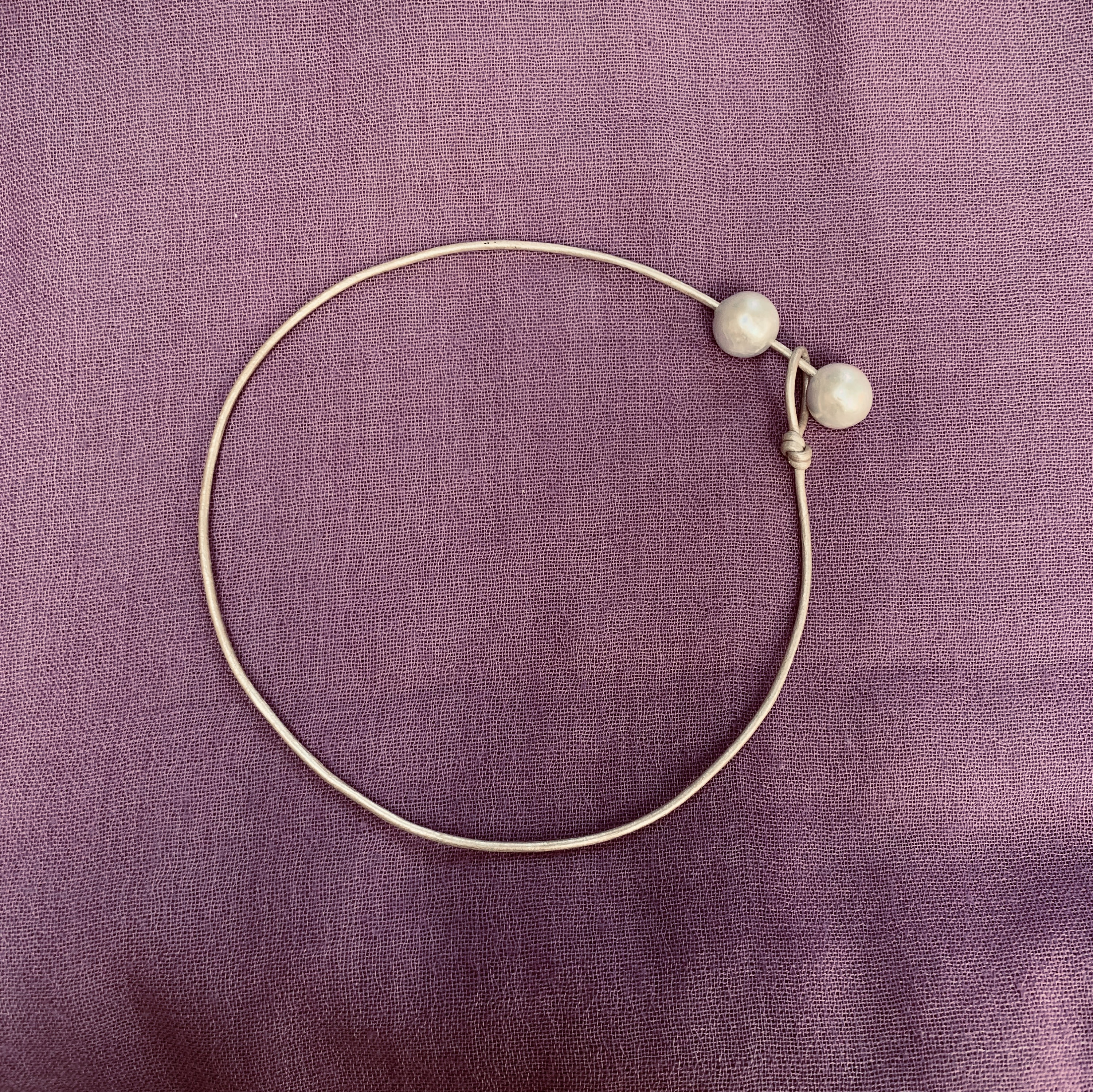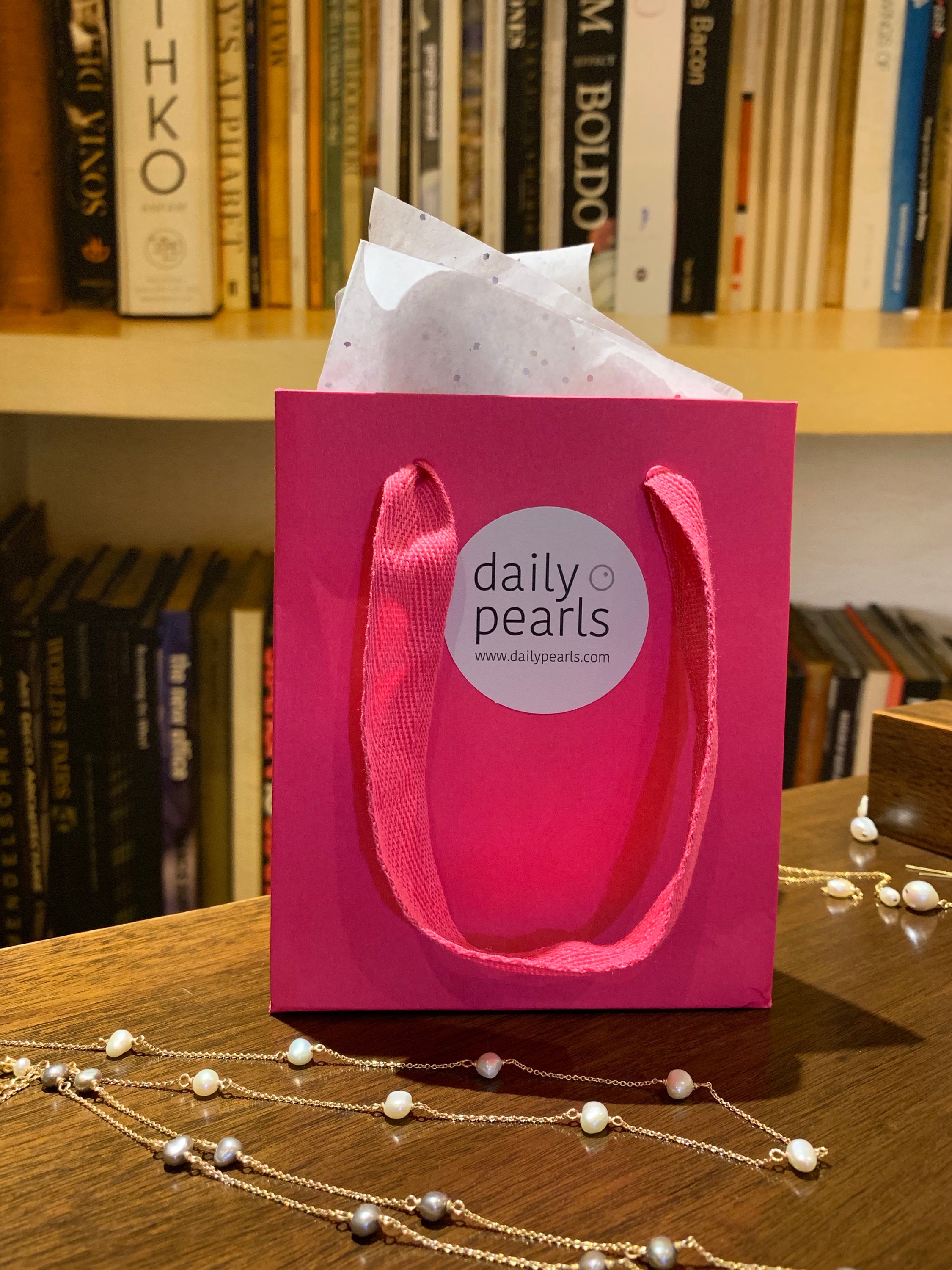Large Round Pearl Choker on Warm Silver Metallic Leather, Easy to Wear Two Different Ways, Refined Yet Boho
$70.56
This large, smooth Edison freshwater pearl and metallic choker is the perfect summer accessory. You can wear it for any occasion, except, perhaps, swimming. (And one dip won't kill it, but multiple won't be good for it.) The simple clasp is easy to use and secure, making it quick to put on and take off. You can wear it with the sliding pearl alone in front, or with the both pearls in front.
If you would like the necklace shorter or longer, please make a note in your order.
If requested, the necklace will be sent with a pink gift bag and tissue paper.
To keep your pearls looking their best, they should be the last thing you put on and the first thing you take off. Avoid getting perfume, hairspray, lotion, or any other chemical on them, and wipe them off right away if you do. Keep them out of water, where hair products, chlorine, or salt water could dull or discolour them. Water can also weaken the bond between the pearl and the post.
As popular as pearls are, the range of varieties and prices can get confusing. Here's what you need to know:
1) Almost every real pearl on today's market, regardless of variety, is “cultured.” A cultured pearl is grown in an ocean or a lake, and develops around a nucleus or irritant which is placed in an oyster or mollusk. The final product is created by nature, albeit with man’s help.
2) “Natural” pearls are pearls that have been found in oysters. Natural pearls found today sell for tens of thousands of dollars. Many natural pearls on the market are in antique pieces, and come with gemological x-ray certification.
3) The highest-priced cultured pearls are cultured in seawater, and there are three main varieties: Akoya, Tahitian, and South Sea. Akoya pearls, grown off the coast of Japan, were the first saltwater pearls to be cultured, and became the "classic" pearls your grandmother might have worn. Tahitian pearls, which are grown around Tahiti, grow naturally in shades of grey and black, and were developed in the 1970s. South Sea pearls, grown in the Southern Hemisphere, were developed more recently, and are considered by many to be the most desirable pearls.
4) Daily Pearls makes jewellery from cultured freshwater pearls, which are the most affordable variety of cultured pearls. China produces most of the world's freshwater pearls, many of which are unusually shaped, or "baroque."
5) Plastic or glass imitations of cultured pearls are called “simulated” pearls. You can tell the difference between cultured and simulated pearls by touching one to the top of your bottom teeth. If it feels gritty, the pearl is real. If it feels like plastic or glass, it is not a cultured pearl.
Let us know if we can help you with your pearl shopping!

